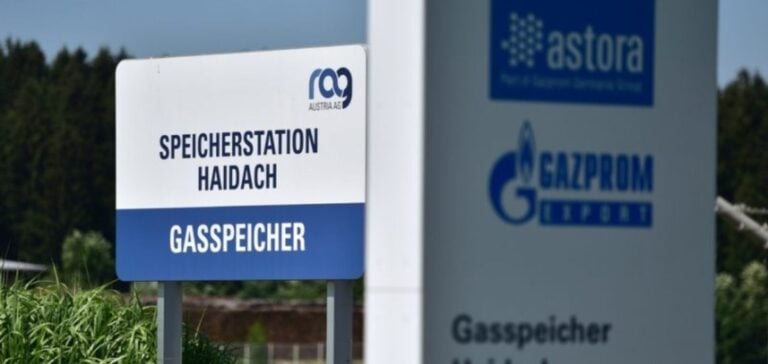On Thursday, Vienna summoned European Commission representative Martin Selmayr, who the day before had described Austria’s current imports of Russian gas as “blood money”, persisting despite the war.
Martin Selmayr’s Comments on Austrian Blood Money Create Unease
“Mr. Selmayr has been summoned to the Ministry of Foreign Affairs for a meeting with the Secretary General,” according to a statement sent to AFP, adding that the meeting would take place later. “Oh my God, 55% of Austria’s gas still comes from Russia,” the German diplomat had said on Wednesday evening on the sidelines of a contemporary art fair in the capital, according to remarks quoted by the APA news agency.
“It’s paid for daily with blood money,” he denounced, “surprised” that no one in the Alpine country protests against this situation.
Through its deputy spokeswoman Dana Spinant, the European Commission said it “distances itself from the regrettable and inappropriate statements made by the Head of Representation in Austria”. The European executive has asked the latter for “an account of the incident”, she added.
Before the invasion of Ukraine, 80% of Austria’s gas imports came from Russia, a figure that has been reduced – in June, the Austrian government put the figure at 60% – but dependence remains high due to the contractual links between the OMV group, 31.5% owned by the Austrian state, and the Russian state giant Gazprom until 2040.
Austria: Between Historical Neutrality and Modern Energy Challenges
The first Western company to sign a supply contract with the Soviet Union in 1968, the company claims to have multiplied its sources of supply since the start of the conflict.
While Mr. Selmayr said he understood the energy problems of landlocked Austria, a country hostile to nuclear power, the influential former Brussels official believes that this wealthy state, like other EU members, can do without Russian gas.
Austria, whose diplomatic relations with Moscow date back to 1698, has long rolled out the red carpet for Vladimir Putin, who even waltzed into a minister’s wedding in 2018.
The country of 9 million inhabitants, which sees itself as a bridge between East and West, is very attached to its neutrality, which has not been called into question by the war. Unlike Sweden and Finland, Austria has no intention of joining NATO, protected by its geographical location at the heart of the EU.
While the government has now turned its back on the Kremlin, siding with Kiev, many companies continue to maintain close ties with Moscow.
Why does it matter?
This underlines the tensions linked to energy dependence on Russia within the EU, particularly in times of conflict. Selmayr’s comments highlight energy security and foreign policy concerns in the context of geopolitical crisis.
Reducing dependence on Russian gas remains a major challenge for many European countries.






















